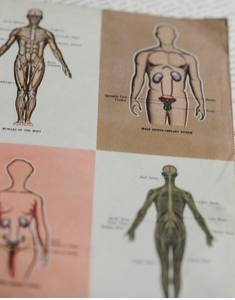 Our bodies are so complicated and remarkable that we often take them for granted. For example, the ability of our immune cells to identify and destroy foreign threats like harmful bacteria, viruses, parasites, toxins, cancer cells, fungi, and other dangers is astounding. But, as amazingly as our bodies are, there are also instances where things go very wrong.
Our bodies are so complicated and remarkable that we often take them for granted. For example, the ability of our immune cells to identify and destroy foreign threats like harmful bacteria, viruses, parasites, toxins, cancer cells, fungi, and other dangers is astounding. But, as amazingly as our bodies are, there are also instances where things go very wrong.
Examples of this are the over 80 known autoimmune diseases, where our immune cells mistakenly identify healthy organs or tissues as cause for concern and set out to destroy them. The mistakenly identified target might be bones and joints (in the case of rheumatoid arthritis), muscles (polymyositis), skin (psoriasis), digestive tract (Crohn’s), nervous system (multiple sclerosis), or endocrine glands such as the thyroid (Grave’s disease and Hashimoto’s thyroiditis) and pancreas (type 1 diabetes). In some cases, multiple areas of the body can be affected (lupus). For some individuals, the symptoms can be severe, while others may experience relatively mild symptoms. Most cases are chronic with no known cure.
Even though autoimmune disorders are quite common (affecting an estimated 23.5 million Americans), researchers still know little about their causes or treatment. Even making a correct diagnosis can often be difficult.
But there is strong evidence to suggest that genetics and gender (nearly 80% of those diagnosed with autoimmune diseases are female) may play significant roles. Exposure to viruses, infections, toxins, or pollutants may also be contributing factors.
Can autoimmune diseases be prevented?
While preventing autoimmune diseases may not be possible in many cases, experts suggest that the following anti-inflammatory lifestyle measures might be helpful:
- Eat a healthy diet with plenty of vegetables and fruits, whole grains, lean protein, and healthy fats such as the Omega-3 fatty acids found in salmon, sardines, trout, mackerel, and herring. Limit processed foods or those with a lot of added sugar.
- Engage in regular exercise to support heart health, overall well-being, and a healthy body weight.
- Get adequate sleep, which would be 7-9 hours for most of us.
- Learn skills for managing stress, such as meditation, deep breathing, yoga, and mindfulness.
- Don’t smoke and minimize alcohol consumption.
- Maintain good dental health to prevent chronic inflammation.
- Stay well-hydrated all day long. You can do this by drinking plain, coconut, or naturally infused water (such as cucumber, lemon, or mint), herbal and other non-caffeinated teas, unsweetened fruit and vegetable juices (diluted if they contain excessive sugar), and milk. And unlike camels, we humans are not good at storing up fluids. We’ll just urinate out any excess at the moment. So, drinking smaller amounts more frequently leads to optimal hydration.
- Avoid exposure to pollutants and toxins (both indoor and outdoor) as much as possible. Open windows to improve fresh air ventilation, wash conventionally grown fruits and vegetables (or, better yet, purchase organic), try to avoid chemical pest control products, choose less toxic household products, know what is in your drinking water, check the Environmental Working Groups guides before buying personal care products, limit the use of plastics, and avoid electromagnetic field (EMF) exposure as much as possible.
Can you prevent autoimmune diseases? Perhaps…in some cases.
While the lifestyle choices we’ve mentioned MAY reduce the risk of developing autoimmune diseases, they do not guarantee prevention. Genetics and other uncontrollable factors simply put some individuals at a higher risk. At the very least, however adopting these lifestyle steps may be solid, science-based recommendations for everyone with an interest in maintaining optimal health and overall well-being.
Best chiropractic care in Omaha for optimal health and well-being
Back2Health provides patients with coordinated care for many health-related concerns, including preventive care. Dr. Jeffrey Meyers has been a practicing Doctor of Chiropractic since 1996 and he’s helped hundreds of patients find pain relief, manage their symptoms, heal faster and enjoy fuller, more active lives. He’d love to help you too. Call his 78th and Dodge, Omaha NE office today at (402) 898-1540.


